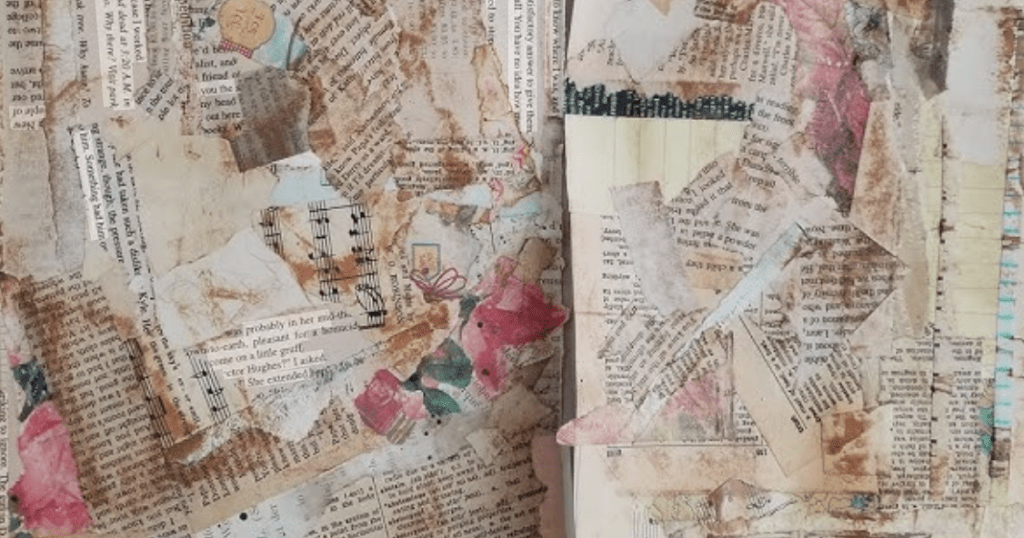During the first half of freshman year I was in a constant state of confusion and anxiety, and I pretty much constantly looked to the more experienced creative writers as examples. But when sophomore year started, not only was I more experienced, but the new freshmen were now looking up to me and my peers as examples. This was a very strange experience for me, especially due to the fact that most of the freshmen just so happen to be older than me. Now that the first half of my second year is almost done, and with the poetry show approaching, which I am greatly looking forward to, (Go see it assuming it hasn’t already happened by the time this is being read,) the freshman are stressing about the upcoming show while I, who am no longer stressing, am shunted into the role of helping them out.
Aside from having a new freshmen class, my thoughts on poetry changed a lot since this time last year. When I started last year I hated poetry, and thought it stupid, but now that I have one poetry unit under my belt as well as most of a second, I have come to really love poetry. I still don’t read it in my free time or anything, (Not that I have free time,) but it has become one of my most practiced writing forms. Not only have I learned to enjoy it and gotten more experienced at it, but becoming a poet has also made me better at other forms of writing, by teaching me how to use more flowery and descriptive language.
My perspective on performance has also changed a ton since last year. Whereas at this point last year I had horrible stage fright, and the things I was looking forward to the least were the two performances, now they are the things I’m looking forward to the most.
All this retrospective thinking has made me wonder how things will change next year and the year after that, but I suppose all will be found out when it happens.

CREATIVE WRITING
at the Ruth Asawa School of the Arts in San Francisco
Welcome! CW develops the art and craft of creative writing through instruction, collaboration, and respect. This blog showcases STUDENT WRITING and how to APPLY to Creative Writing.
-

-

Throughout my years in Creative Writing, when I have passed out printed copies of my poems, I have received them back with advice and questions of logic. That is what workshopping has taught us to do! Poems are brought into the workshopping space to come into themselves. So, this past unit in Creative Writing two, when I handed out my poem and read it aloud, I was delighted to hear and receive actual analysis.
In the first half of our poetry unit in Creative Writing two, we learned about the four temperaments: music, imagination, structure, and story. And though I have a complicated relationship with this way of analyzing poetry, it meant that we were bringing each other’s work into the space and truly identifying how the art affected the reader. We were viewing one another’s poems as whole works that need not be altered nor improved. We did our best to discuss as though the author was not in the room with us. The poet would read aloud and the group would split into the four temperaments to identify how they are used in the poem. I found it wildly amusing to watch people debate over what they thought my writing meant. At times, I was given the opportunity to share my perspective on my writing, and the most exciting part was: my input was no more true than anyone else’s. We were all interpreting what my writing meant. This allowed me to identify the parts of my poem that didn’t come across the way I had hoped they would.
The act of workshopping is to find ways to communicate a poem’s message with more eloquence and tact. Therefore, how can workshopping be productive if a poem’s meaning hasn’t been verbally interpreted by its receivers? From now on, I will always treat the work of my peers as complete and ready for analysis, while allowing my analysis to inform the future alterations to the poem.
-

Before I joined creative writing, I was in zero active group chats. Now, I’m in two. This number may seem small to those of you group-chat-jugglers, but for an introvert who dislikes a lot of people and doesn’t know what to say to anyone, this is a miracle.
My two group chats are “Wiggly Worms,” which is the freshman-sophomore group chat, and “CW SOTA 29’,” which is what it sounds like. Wiggly Worms started in the summer, and I remember how adamant I was that I was going to silently lurk in the chat and not otherwise contribute to the conversations. I didn’t understand most of what was happening, anyway. (And these two statements basically sum up my entire personality). So imagine my surprise when my plan doesn’t work, and in fact I begin to have 11 pm poem share-outs with people I’ve never met. What is this sorcery?
Nowadays, while I am not the most active person on the group chats, I don’t hesitate to text whatever comes to mind, usually pictures of weird things that remind me of my friends or disgruntled responses to bad pictures of me that were taken without my permission. (And this paragraph basically sums up how much I’ve changed since I’ve joined creative writing). The things that used to terrify me about people don’t scare me anymore, at least not when I’m at school. The weird things about me that I tried to hide are now the things I display prominently to my friends, and they’re fine with it (mostly). I love the confidence that’s arisen from knowing that I have people who know exactly how weird I am, how easily I get scared, how little I know about pop culture, how bad I am at peopling, and knowing they’ll tolerate me anyway. This is the kind of security little Kavi wished for every night, and now I have it, and I can tell how much I needed it. I’m so grateful for my department.
There will be times where I’ll be living my cool new life and I’ll be struck with how happy little Kavi would be if they could see the things I now consider normal, like the way I walk home with random things on my arm (mostly 67 because Tanner is monster), or how I have 6 books in my locker because people (Aubrey) are lending me things they know I’ll like faster than I can read them, or the fact that I have a locker now, or the fact that I’ve been brainwashed by MLA format, or the fact that I know my people well enough to feel perfectly comfortable sleeping on their shoulder while we watch a movie in creative writing (well, I guess that’s not accurate. I’m usually the pillow, for reasons I still don’t understand). These are the things I’ve wanted since I stumbled across the blog I’m writing for now, and I still can’t believe that I get to be the person on the other side of the computer.
Since little Kavi used to read this blog like it was religion, I’d like to think they’d read my post if they could. So, little Kavi, I want you to know this: It’s going to be okay. You’re going to find your people, and it’s going to feel like everything you didn’t let yourself hope it would be.
-

Creative writing taught me how to notice. How to sit with a line or even a single word long enough to understand what it’s really trying to say. How to recognize when something feels off, even if I can’t name it yet. I used to think writing was about expressing what you already know. Now I think it’s about listening. First to yourself, then to others. It’s about tuning into the quiet truths.
There’s a natural honesty that comes when writing fiction or poetry. You build up characters, scenes, dialogue, but somehow, meaning slips through in ways you didn’t ever mean for it to carry. I’ve written lines I intended to be meaningless jokes, only to realize a week later they were confessions. That accidental truth is what keeps me engaged in writing. My development also came largely through group discussion and feedback. I learned that critique isn’t just about pointing out what works or doesn’t, it’s about learning how to enter someone else’s world in a caring way. You start to see that vulnerability is what writing is all about, and how much trust it takes with people to share unfinished work. When you’re the one getting feedback, you learn how to separate your ego from the work, and how to revise even if that means cutting a line you loved, because the work is nonsensical with it.
Overall, my development in creative writing boils down to my precision and openness. I used to chase cleverness in my writing. Now I chase clarity. Clarity isn’t about word choice. It’s about emotional truth. Writing taught me that growth doesn’t come from being right, it comes from being willing to rewrite in service of deeper meaning.
-

In Creative Writing, most of our time is spent analyzing, generating, or editing writing of our own or our classmates. Through in-class prompts and external assignments, we are creating almost daily. To be surrounded by such a flourishing community of writers and in an environment that pushes both your creativity and capacity is nothing short of a blessing— but it’s no secret that it can be exhausting. Every student, across grade levels and experience, has suffered from writer’s block in some way shape or form. In fact, I’d venture that every artist has dealt with creative block in some manner. However, in Creative Writing, we are encouraged to write through it— and here are some of the methods employed by seasoned and fresh writers alike.
First, it’s important to recognize where your writer’s block stems from. For many, stress and burnout saps both their energy and creativity. Overwork and underconsumption are also common culprits— in other words, writing too much without reading enough. Many writers are inspired by the works of others, and studying art that speaks to you in its various forms is essential to producing work that you are proud of yourself. Watching films, reading across genres, and studying visual arts are all great ways to find inspiration and fill your creative well. Similarly, take advantage of the community around you! Read the work of your classmates and take inspiration from their writing and workshopping. Art is everywhere— there are no limits. And finally, if all else fails, take a break. To create something you’re proud of is a process that moves at its own pace on its own time. Sometimes, all a story or a poem needs is a step back to breathe, or to let it sit for a couple days. Come back to it when you’re refreshed and inspired— your best work can’t be forced.
-

The annex! A magical place filled with the fervent creation of stories and a lot of groaning & banging your head on the wall.
Every Wednesday, since my first day in Creative Writing over three years ago, the elderly senior class would lock themselves into the annex to work on their theses. Even as a junior planning the topic of my own thesis, I was still in so much awe of this mysterious tradition. Just you wait, the seniors would tell us, soon this will be you.
Yet even this past summer as I was toiling over my characters and worrying over page counts, it didn’t feel quite real yet. As I greeted my classmates on the first day of school and smiled at the new freshman’s nervousness, I felt like I was just doing another creative writing assignment, just returning after another restful summer, and just going to keep doing the same thing that I had been ever since I was the nervous freshman on the first day of high school.
And then—the annex. After community bonding weeks at the beginning of the school year, seniors in creative writing are banished into the annex with the senior thesis coordinator to make the first steps at turning whatever incoherent word soup they drafted over the summer into the neat and tidy book that will be read at the end of the year senior thesis reading. Filled with workshops, peer editing, workshopping, and more, this week is an intro to the weekly thesis workshops that the seniors have every Wednesday for the rest of the year. This was when the realization hit me, as we sat discussing the sliminess levels of my friend’s main character, I suddenly understood how all the past years of seniors felt: we’re old as hell!
This light bulb moment got me thinking about how cool creative writing’s structure is. Yes, it does feel like just yesterday that we were all freshmen with iffy haircuts who didn’t know what iambic pentameter is, but when I take a closer look I can see how much we’ve managed to pack into the past three plus years. Thesis writing seemed like such a far off thing when I was an underclassman, but that’s the beauty of how creative writing works, and how magical it is to keep growing with the same group of people for four straight years. Every analysis that ended in laughter over someone’s completely unrelated tangent, every afternoon spent after school abusing our whiteboard privileges, every museum trip we’ve ended with a random talk about bugs on the train ride home, every lazy day spent in a patch of sun in the botanical gardens like a pile of kittens, every poem we’ve watched each other cry over, every day we’ve spent not saying anything to each other because four years is a long and tiring time, every confession, every mundane conversation, and everything under the sun has led us to these quiet days spent on the final thing we will write for creative writing. This assignment doesn’t just feel like another thing to check off the list before I graduate, it’s a culmination of everything that I’ve learned being surrounded by such a beautiful class of writers. And while at the end of the day this is a solo project whose content we’ll have to cry over in our own bedrooms at three o’clock in the morning, there is still that tradition. That tradition where, every Wednesday, as we meet to curse our last-month selves for not doing better time-management planning, I am reminded that even though this is our last year together, we are still spending the whole thing as we’ve spent our entire time here: together.
-

When I first joined the Creative Writing department, it was halfway through the school year. Right in the middle of everything. I was so lost and out of rhythm. Everyone knew what they were doing, everyone had a route. Everyone already had their buddy, and I did not. At first, I did not really feel like I missed out. I had friends, I started getting used to the pace of the department, and things felt fine. But when the next school year started and I finally got my own buddy, I realized what I had been missing.
The buddy program is one of those things that sounds small but ends up meaning a lot. Whether you are the older one giving advice or the younger one receiving it, the support you get is real. You have someone who knows the teachers, the assignments, and the little unspoken things that make SOTA what it is. You can ask them about what classes to look out for, where to find quiet corners to write, or how to survive workshop nerves. Or, if you’re the older one, you can pass down what your buddy passed down to you. It sort of starts a tradition.
But it is not all guidance, sometimes it is just fun. My buddy and I hang out during our buddy dates, talk about stories we are working on, or go get food somewhere we both like. It is simple, but those small moments make the department feel closer, more us.
Having a buddy has reminded me that SOTA’s Creative Writing program is not just about writing. It’s about community, about feeling like home. You are not just learning how to create stories; you are learning how to connect, share, and grow alongside someone who gets it.
-

As a freshman in Creative Writing, I can already tell you that field trips and wondrous days with your classmates will be some of the most memorable moments you make at SOTA.
To mark the end of community weeks this year, CW took our annual trip to Aquatic Park. After everyone had changed into their swimsuits and shorts, we took the bus straight from SOTA all the way to where the Ghirardelli sign meets the Bay. The sun was high in the sky and perfectly lit against the water, and Emily (our wonderful CW director) set up a speaker playing lovely music as we ate popsicles on the concrete steps, ran on the sand, swam in the soothing cold water, and basked in the warmth of the day. The perfect way to end the week, on a sunny Friday afternoon with classmates, just hanging out and having no worries.
We spent about two hours there, simply relaxing and laughing with our friends. And then all of a sudden, as it turned 4:00, it was only the freshmen left. Our plan was convenient, as it was Friday, and we all were planning on heading over to Cine Club (where you eat delicious cookies and watch films in various genres from around the world- a mandatory but exciting opportunity for all creative writers). We all decided to take another long bus trip to the Randall Museum to watch the film, Run Lola Run. However, we did end up missing one of our bus stops along the way, while also getting hilariously lost within the streets of the Castro neighborhood, surrounded by cars and people and colors. We ended up getting directions from a very kind pedestrian (who definitely thought we were tourists judging by our exceedingly confused expressions) and worked our way up the hill just in time to grab refreshments and enjoy the film at the museum.
Whenever I reflect on the funny and slightly concerning moments of that day, I remember that my happiness didn’t come from where we were, or what we did. I realize that it was the people around me that truly made me smile and made the day special, and that goes to say for every trip and activity that we get to experience during community weeks. I will be forever grateful for the beautiful day I got to experience with CW.
-

I enter the room with the big door saying Creative Writing. Emily says welcome to everybody but I have my ears blocked so I don’t hear anything, and a big fog is coming over me despite the fact that there’s sun. So, I sit at the nearest table. Nope, wrong place, so I sit at the Freshman table, and the truth is I look like a girl with spaghetti arms moving nervously, but my secret is that a big orange creature it’s resting on my head and every time it grows, becoming a big weight. The table is full of freshmen, I want to say a word but a knot in my throat is squeezing more and more. The faces of the people have big red marks, so I simply lower my head.
Emily says we’re going to have buddies, I have no idea what that is, then they start saying names, listening to who my buddy is. They tell us to find our buddies, but the big orange creature grows, making it impossible for me to stand up. So I sigh and take a deep breath. I get up from my seat with effort, then I turn my head across the room, a hand goes up, making signs for me to approach. So I go to sit and is my buddy with a big red mark on her face, just like everyone else. We start talking to get to know each other better and writing in our journal, but I only hear the voices of the others with a tremendous fatigue, and again the orange creature grows.
Later we go outside for some activities, and the orange creature has a big ego and it starts whispering to my ear negative things, like I don’t belong here, that I’m the chess piece out of its pattern, and I wish the earth would swallow me, but I simply walk and let the current guide me.
We played some games and, to my surprise, everyone was friendly. I messed up in one game, but a classmate just joked about it and told me that no one would see my mistake. Her big red mark vanished and the knot in my throat eased.
We returned to the room and still had to sit with our buddies. I sat down and my buddy’s red mark was still there, but we talked about a few things and I notice that we have a lot in common. And it wasn’t just her; some classmates near the table also started talking, and their big marks, including my buddy’s, vanished, as did the knot in my throat.
We spent the rest of the hour talking and doing activities. When it was time to leave, I went to the bathroom for a moment. When I looked at myself in the mirror, I saw that the orange creature was much smaller, suffering, and I just smiled radiantly, waiting for tomorrow and so no one would have a red mark.
-

Year after year, Creative Writing’s Community Weeks culminate in a camping trip to Kirby Cove. Freshman year, the upperclassmen spoke so fondly of the trip that I was more than eager to experience it for myself. And of course, Kirby didn’t disappoint. The sense of community, the stories around the campfire, and the view of the Golden Gate Bridge made it feel like something out of a movie. It quickly became a place that in my mind represented community and creativity. Going into Junior Year, I was excited to experience Kirby for the first time as an upperclassmen—getting to welcome new students and introduce them to the tradition. However, this year we were unable to secure Kirby Cove for our camping trip, so we spent the night at Brannan Island instead. I’ll admit, I was wary of this change of scenery; I wondered if we could cultivate the same closeness that made Kirby feel so special. As the weekend unfolded, it became clear that getting away from the familiar was just what we needed. Without our usual backdrop, we leaned into spontaneity: we developed new ways of playing old games, bonded as a group, and spent time enjoying the Sacramento weather. By the end of the trip, it was clear that the location mattered less than the energy we brought. What made camping special was the people that we shared the experience with, not the location or the backdrop of a certain campsite.